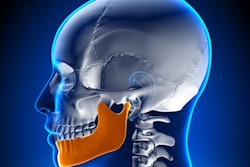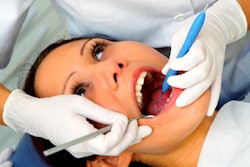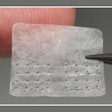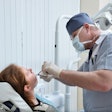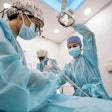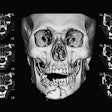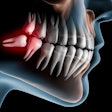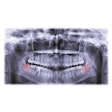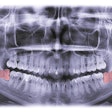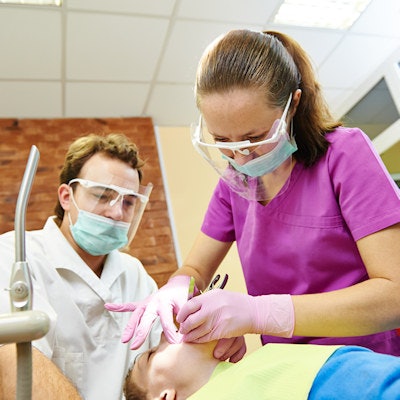
Oral surgeons should consider prematurely extracting the third molars of children before they start bone disease therapy to prevent jawbone destruction, according to an article published on April 20 in the Journal of Oral and Maxillofacial Surgery.
Removing underdeveloped wisdom teeth before children begin antiresorptive therapies to treat osseous diseases and cancer-related conditions may prevent them from developing medication-related osteonecrosis of the jaw (MRONJ), the authors wrote.
"Understanding the potential sequelae of MRONJ on patients prescribed antiresorptives, we recommend that OMSs [oral maxillofacial surgeons] highly consider prophylactic third molar removal in the pediatric population," wrote the group, led by Dr. Steven Wang, an assistant professor of oral and maxillofacial surgery at the University of Pennsylvania.
Antiresorptive therapies, such as bisphosphonates and denosumab, are commonly prescribed to treat bone diseases and cancer-related conditions. These therapies also cause medication-related osteonecrosis of the jaw, a progressive death of the jawbone. Dental extractions increase the risk of this condition, according to the authors.
Current studies reflect the risk of side effects of these medications in adults. Adults face an approximately 15% increased risk of experiencing medication-related osteonecrosis of the jaw following a traumatic injury while taking bisphosphonates.
Though clinicians prescribe antiresorptive therapies more often than adults, children also are prescribed these medications. However, the way antiresorptive treatments affect the occurrence of medication-related osteonecrosis of the jaw in pediatric patients is unknown.
Because of the unknown effects of antiresorptive treatments and limited treatment options for patients who take these medications and need teeth removed, all dental treatment and extractions should be performed prior to beginning the therapy, the authors wrote. This can prevent medication-related osteonecrosis of the jaw.
Prophylactic extraction of the wisdom teeth is, in fact, the best treatment option for pediatric patients because there is no significant increased risk of extracting molars prematurely, the authors noted. This would entail removing the teeth prior to the roots being at least one-third developed.
The only potential side effect of premature molar extraction is that clinicians may need to remove excess bone to reach the tooth buds, the authors wrote. Therefore, patients, specifically children, who are to begin antiresorptive therapies should be referred to pediatric dentists and oral maxillofacial surgeons for immediate evaluations, they wrote.
"The safety and efficacy of precautionary tooth extraction must be weighed against the risks associated with extracting after initiating antiresorptive therapy," Wang and colleagues wrote.






